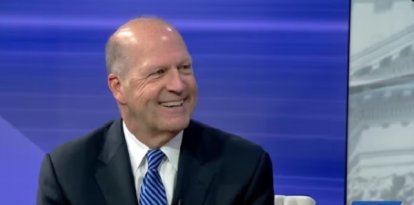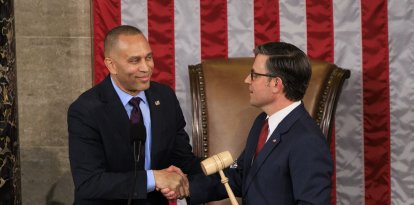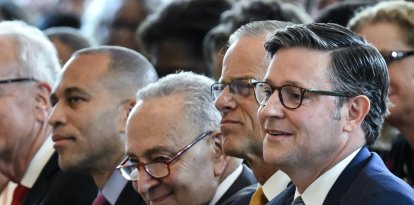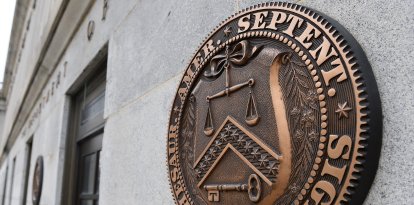Congressional leaders reach an agreement to avoid a partial government shutdown
The bills must still obtain the corresponding approval of both the House of Representatives and the Senate.
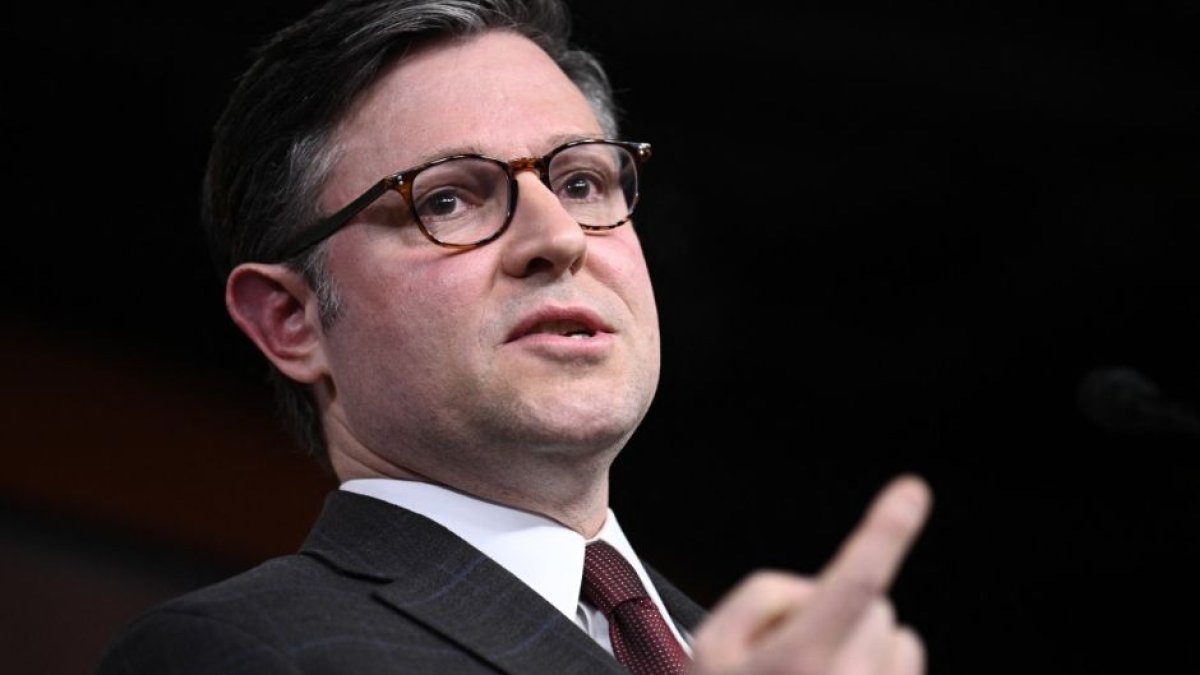
Mike Johnson (Brendan Smialowski / AFP)
This Wednesday, congressional leaders from both parties confirmed that the House of Representatives and the Senate reached an agreement to avoid a partial government shutdown this week.
After several months of efforts to complete the bills that distribute funding among U.S. agencies, leaders of both chambers issued a joint statement reporting that an agreement has been reached on six bills that fund the departments of Agriculture, Justice, the Interior, Veterans Affairs and other federal agencies.
The statement was signed by the Speaker of the House of Representatives, Mike Johnson (R-LA), Senate Majority Leader, Chuck Schumer (D-NY), the minority leader of the House of Representatives, Hakeem Jeffries (D-NY), and Senate Minority Leader, Mitch McConnell (R-KY), as well as the leaders of the appropriations committees of both chambers. This indicates that the deadline to vote on these projects was set before March 8, and the spending levels will conform to the bipartisan agreement reached last year.
The new deadline to finalize the other six bills that would fund the remaining agencies, such as Defense, Financial Services, Homeland Security, and the General Government, among others, was extended to March 22.
The House and Senate will vote later this week to approve a short-term stopgap bill, allowing lawmakers time to execute the agreement in principle and review any legislative text for 72 hours.
“We have been working in good faith around the clock every single day, for months and weeks and over the last several days, quite literally around the clock to get that job done. We’re very optimistic,” Johnson said.
Although this bipartisan agreement represents a significant step toward avoiding a shutdown, approval from the House and Senate is still required for the stopgap measure by Saturday and subsequent passage of the 12 spending bills by the end of next month.
The risk of a partial government shutdown
While a full government shutdown affects all federal government offices, a partial shutdown is limited to specific departments for which a funding agreement has not been reached. As a result, only those departments would cease operations, and their employees would not receive their corresponding salaries.













